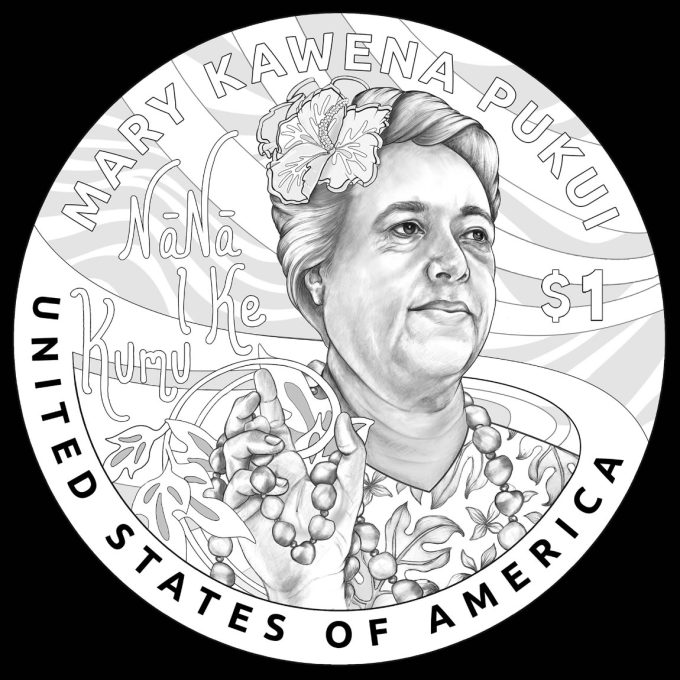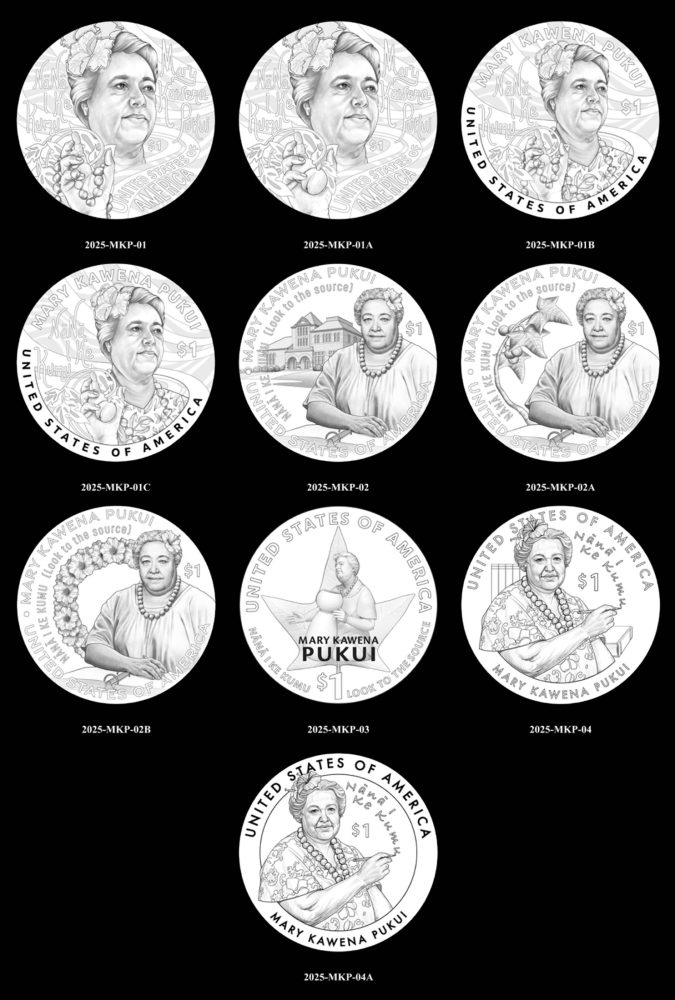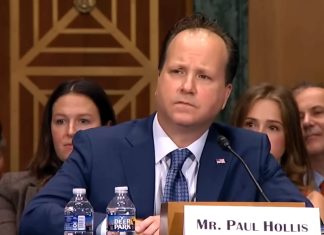Ten candidate designs for the 2025 Native American $1 Coin, submitted by the United States Mint, have been reviewed by both the Citizens Coinage Advisory Committee (CCAC) and the Commission of Fine Arts (CFA). Each design depicts Mary Kawena Pukui, a scholar, author, composer, dancer, and educator, and the first Native Hawaiian to be honored in the dollar program.

Launched in 2009 and authorized by Public Law 110-82, the U.S. Mint’s Native American $1 coin series showcases yearly changing reverse designs (tails side) that pay tribute to the significant contributions made by Indigenous Americans, who include American Indians, Alaskan Natives and Native Hawaiians.
The CCAC and CFA recommended the same design, reverse #01B, consistent with the family’s preferences. This design, shown above, portrays Pukui adorned in an aloha print garment while clutching a kukui nut lei, with a stylized representation of water serving as the background element.
Candidate Designs for the 2025 Native American $1 Coin
With line art images of each candidate design below, all feature a portrait of Mary Kawena Pukui, an inscription of her name, a Hawaiian inscription, along with the mandated inscriptions of "UNITED STATES OF AMERICA" and "$1." The Hawaiian inscription translates literally to "Look to the Source," which strongly reflects Pukui’s life, work, and legacy.

Common Obverse $1 Coin Design
The obverses (heads side) of the dollars in the annual series feature the shared design of Glenna Goodacre’s portrait of Sacagawea carrying her infant son, Jean-Baptiste.

This design will be paired with the eventual reverse design approved by the Treasury Secretary after considering all recommendations.
2024 Native American $1 Coin
The U.S. Mint recently unveiled images of the 2024 Native American dollar, a tribute to the Indian Citizenship Act of 1924. The first U.S. Mint products with this dollar will be available for order on Jan. 29, 2024, through https://catalog.usmint.gov/. Options will include 25-coin rolls, 100-coin bags, and 250-coin boxes containing circulating-quality dollars produced at Mint production facilities in Denver and Philadelphia.





